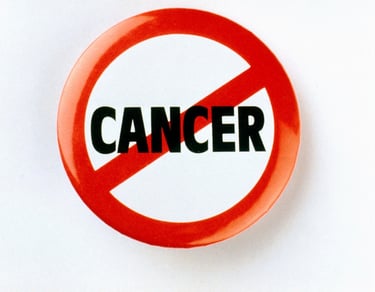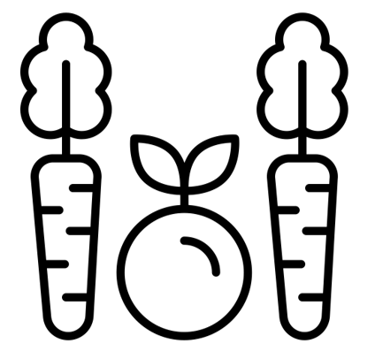I propose:
1) Workshop-lectures on themes relating to health through diet
Whether you're an individual with family or friends, a member of an association, or a company or public body wishing to raise awareness among your employees, don't hesitate to contact me. School events are also possible.
The scope of the workshop can be defined together, or you can choose from the twelve workshops I've predefined, see below.
2) Advice on the composition of menus
for school canteens, company restaurants, nursing homes and other catering services.
Predefined workshop-conferences:
#1 What is a healthy diet? What to eat, when and how?
In this workshop, I’ll give you all the essential information you need to know to have a diet that supports your body's proper functioning and your health. This includes how to eat (I also cover eating habits and cooking, packaging and storage methods and utensils) and when to eat (I also cover chrononutrition and fasting).
#2 What are the links between diet and immunity? How can we strengthen it?
In this workshop, I'll explain the links between diet and immunity, and what you can do through your diet to maximize your immune defenses. I'll also cover cancer, as the immune system is responsible for destroying cancer cells. Finally, I'll give you important advice on how to deal with a viral infection such as influenza or covid.
On a practical level,
A workshop-lecture lasts around two hours, but longer sessions are possible, depending on your needs and the number of participants. For more than 20 people, the workshop is more like a lecture, with fewer opportunities for interaction. Workshop-lectures can be organized in English or French. They take place either face-to-face at a location of your choice, or by videoconference. To explore your requirements further, contact me by phone at 0473/673.470 (+32 473 673 470 from abroad) or via the contact form.
#3 How to maintain good mental health through diet?
Here, I'll explain the many links between mental health and diet, and cover conditions such as depression, burn-out and chronic stress. You'll receive all the information you need to avoid or treat these psychological disorders. I'll also talk about anti-depressants and the links between intestinal health and mental health (the famous "gut-brain axis"). Finally, I'll address eating disorders, which are often linked to depression.
#4 What diet strategy in the event of cancer? How to minimize the risk of cancer?
This workshop is divided into two parts. In the first part, we'll take stock of all the dietary risk factors for cancer, so as to avoid this pathology as much as possible. In the second part, I'll explain the dietary strategy to adopt in the event of cancer, so as not to aggravate it, on the one hand, and to optimize the effectiveness of the treatments, on the other.
#5 Pregnancy and breastfeeding: how to eat? What infant formula to use if not breastfeeding?
This workshop will be very useful if you're considering a pregnancy, or if you're already pregnant. I'll explain what you should and shouldn't do in terms of diet and food supplements. Then we'll look at breastfeeding. For those who are not breastfeeding, I'll explain what to look out for when it comes to baby bottles and infant formulas. Finally, I'll cover the links between diet and fertility.
#6 How to slow down aging?
There will be no miracle recipes or magic bullets, but I will explain what really works to slow down biological aging and avoid degenerative pathologies. My aim is to enable you to live longer, but above all in good health, with the maximum of your physical, intellectual, and mental abilities.
#7 Weight management
This workshop will takes a good look at all the myths around weight-loss diets and awaken you to another approach, that of intuitive eating, which helps to get out of the vicious circle of dieting. We'll also talk about obesity and how best to manage it. Fasting and detoxification are also part of the program, and I'll give you the keys to successfully using the notions of glycemic index and load.
#8 Food and budget: how to cut the bill?
In principle, good food is more expensive than bad food, despite the fact that bad food is ultra-processed. But it is possible to eat healthily without it costing more, as long as you implement a series of tricks I'll be giving you in this workshop. Yes, it's possible!
#9 Menopause and perimenopause: what dietary strategy?
In this workshop, I'll explain all about the hormonal and dietary aspects of these two critical periods for women: perimenopause and menopause. I'll also cover hormonal and phytohormonal treatments and the best strategies for minimizing weight gain and digestive discomforts associated with menopause.
#10 Athletes: managing diet and nutritional risks
Sportsmen and women need the right diet and hydration, and I’ll explain the main aspects of this. I'll then cover the nutritional risks to which athletes are exposed and how best to manage them, so as to minimize the risk of injury and maintain your performance.
#11 Baby and toddler nutrition
I'll give you all the keys to managing baby's diet in the best possible way, so as to minimize the risk of allergies and promote acceptance of a wide range of foods. We'll then move on to the nutrition of young children, right up to their entry into elementary school, to avoid any negative impact on their development and behavior, and to prevent the onset of obesity or insulin resistance.
#12 Intestinal health: importance, preservation, and restoration
In this workshop, we'll look at what good intestinal health is and why it's important. We'll then move on to how best to preserve it and, if it has been lost, how to restore it. Among other things, I'll give you a very effective process of intestinal regeneration, which enables starting afresh on a sound footing, so as to avoid developing a series of pathologies that have their origins in poor intestinal health.
























